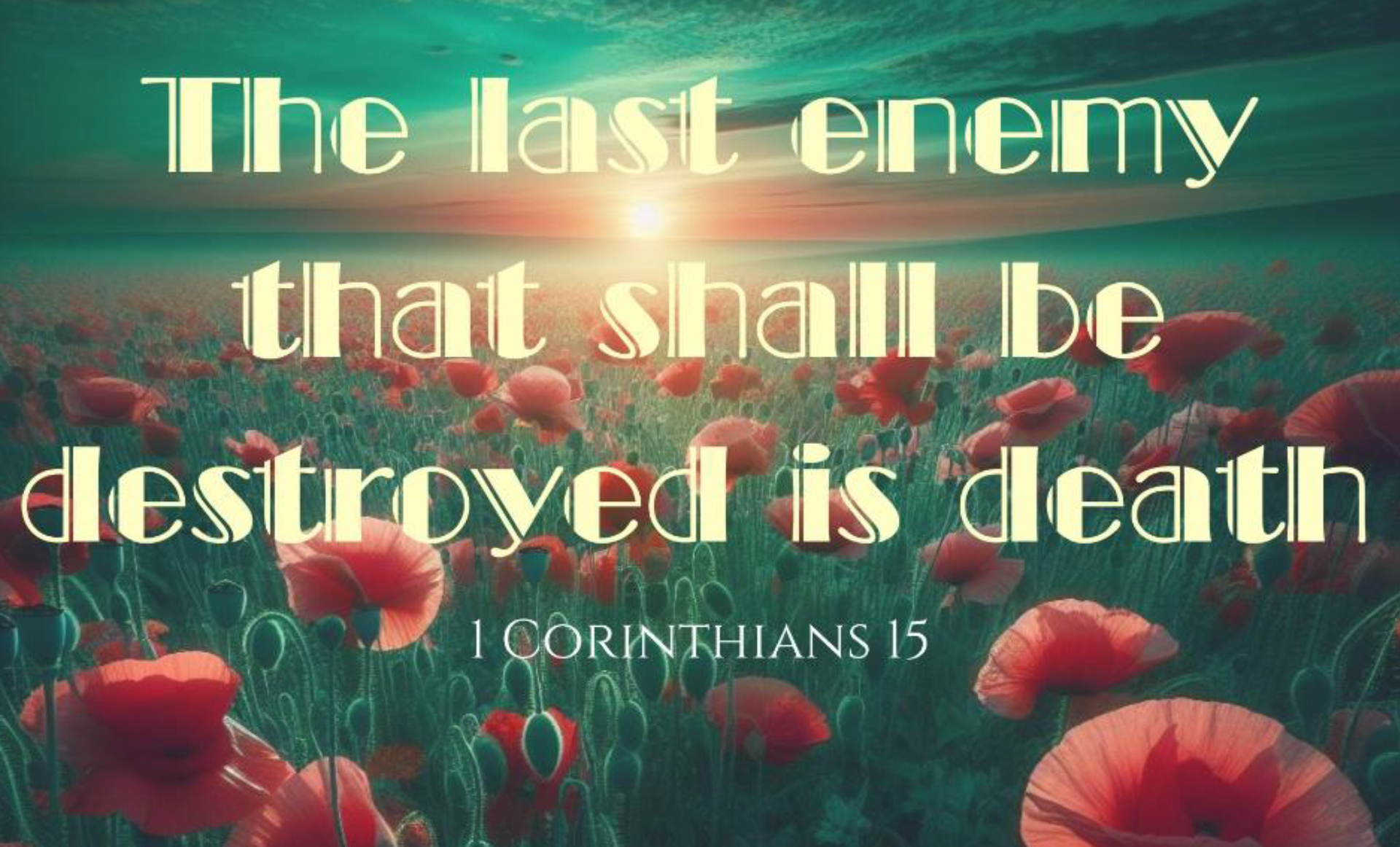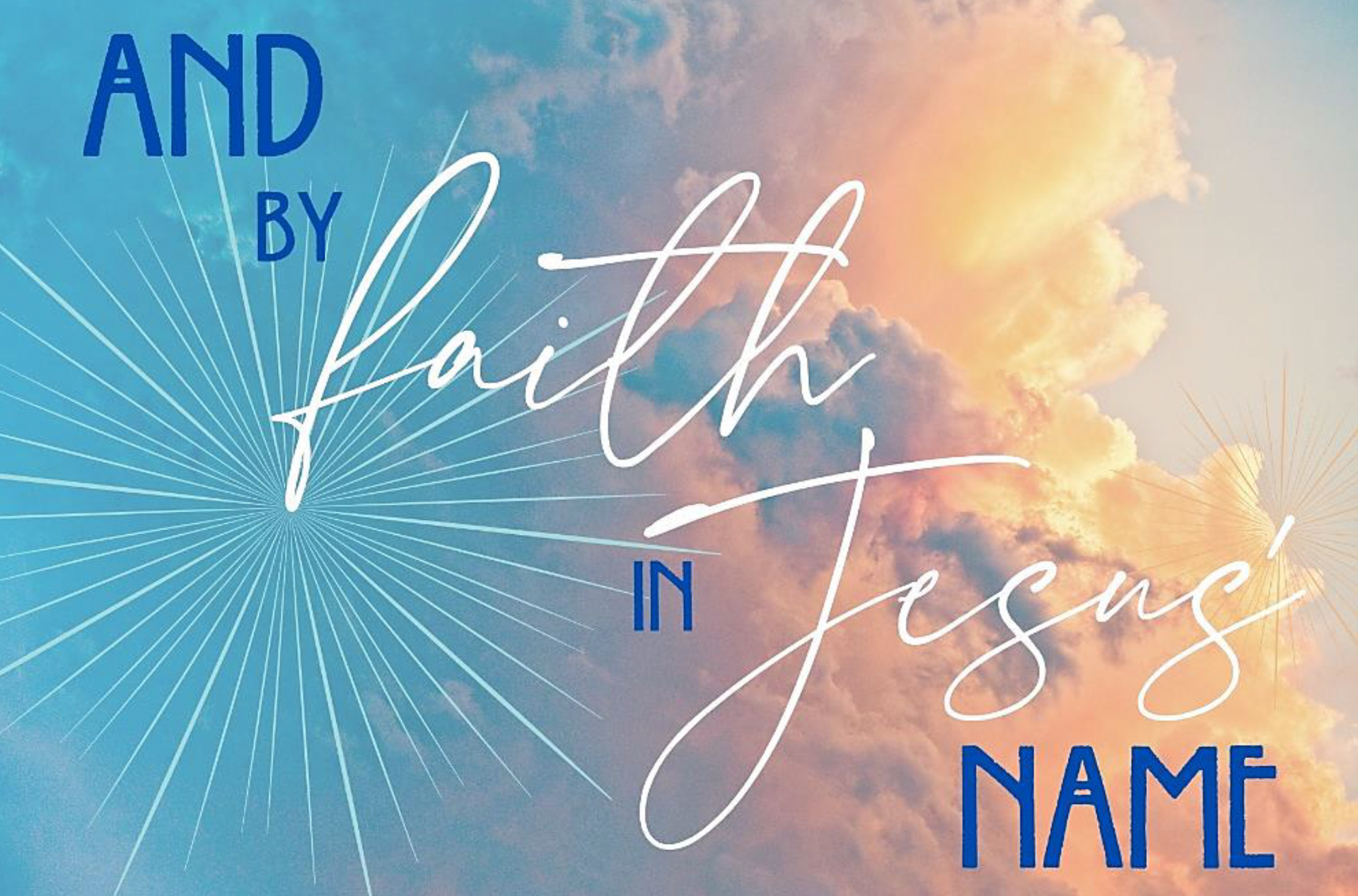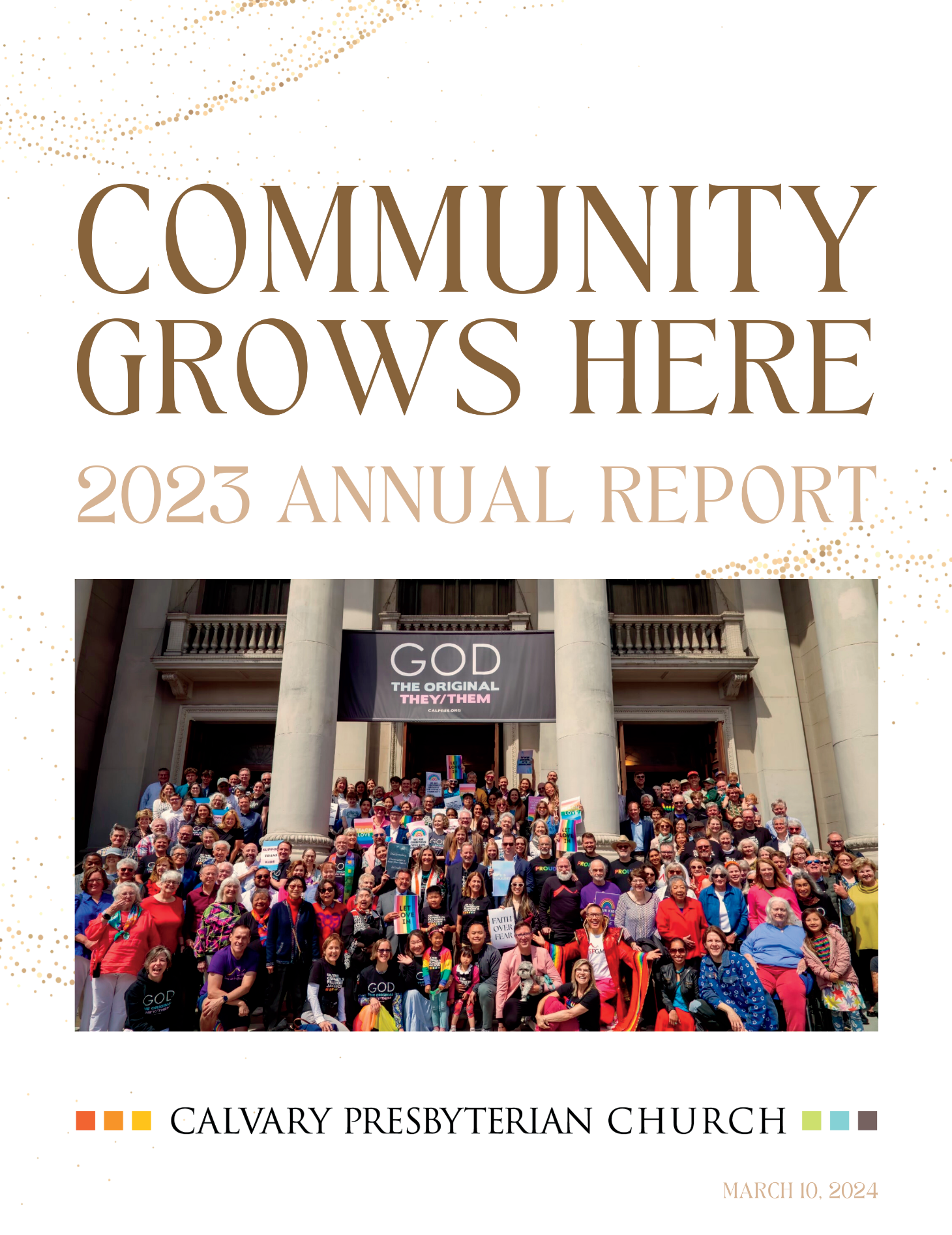Worship Service Sundays at 10am | In-Person or Livestream Here
God: The Original They/Them Shirts
Available Here
2024 Calvary Pride Event featuring Derek Webb •
Tickets Here
Friday, June 7 at 8pm • Calvary Presbyterian Church
Sermon 04.28.2024: Resurrection People, Not Perfect People
During this season of Easter, we have been going through a sermon series on being "resurrection people." But we are resurrection people, NOT perfect people. Resurrection people can still make mistakes, fail, fight, and flounder. But the good news of resurrection is that we can rise to try again. Have you made a mistake, fought with family, broken a promise, or done anything wrong since Easter? Join us on Sunday and experience grace, for we are resurrection people, and grace abounds!
Scripture
Acts 18:1-4
After this Paul left Athens and went to Corinth. There he found a Jew named Aquila, a native of Pontus, who had recently come from Italy with his wife Priscilla, because Claudius had ordered all Jews to leave Rome. Paul went to see them, and, because he was of the same trade, he stayed with them, and they worked together—by trade they were tentmakers. Every sabbath he would argue in the synagogue and would try to convince Jews and Greeks.
1 Cor. 1:10-18
Now I appeal to you, brothers and sisters, by the name of our Lord Jesus Christ, that all of you should be in agreement and that there should be no divisions among you, but that you should be united in the same mind and the same purpose. For it has been reported to me by Chloe’s people that there are quarrels among you, my brothers and sisters. What I mean is that each of you says, ‘I belong to Paul’, or ‘I belong to Apollos’, or ‘I belong to Cephas’, or ‘I belong to Christ.’ Has Christ been divided? Was Paul crucified for you? Or were you baptized in the name of Paul? I thank God that I baptized none of you except Crispus and Gaius, so that no one can say that you were baptized in my name. (I did baptize also the household of Stephanas; beyond that, I do not know whether I baptized anyone else.) For Christ did not send me to baptize but to proclaim the gospel, and not with eloquent wisdom, so that the cross of Christ might not be emptied of its power.
For the message about the cross is foolishness to those who are perishing, but to us who are being saved it is the power of God.
Sermon Text
We are in a liturgical season called Eastertide which began on Easter Sunday, March 31st. And during this season, we have been in a sermon series on what it means to be “Resurrection People.” As followers of Jesus, we follow in his footsteps. We emulate our lives based on the way that he lived, in the way that he died, and in the way that he rose again.
And while we have yet to physically experience death and resurrection in our own bodies, through Christ, we have died to the ways of the world, and risen again into a new life. We are a resurrection people.
Now, resurrection is not the same as resuscitation. Resuscitation is what Jesus did with Lazarus, when he brought him back from the dead. Lazarus, at some point after Jesus called him from that tomb, died again, this time for good. He wasn’t resurrected the way Jesus was. He was resuscitated like when doctors use a defibrillator; minor detail, he was dead for several days rather than several seconds, but you get the point. Resurrection and resuscitation are not the same.
Because Jesus doesn’t die again after his resurrection on Easter. Instead, the resurrected body of Christ lives on eternally. Jesus’s resurrection was not just a coming back from the dead, which in and of itself is a full-blown miracle. But it was a cosmic moment of redemption, renewal, and new life, that, once and for all, defeated death and violence and pain, in all its forms, for good. So whether you are able to believe in bodily resurrection or not, we are called to be resurrection people.
To be resurrection people means to believe, as Frederick Buechner says, that “…the worst thing is never the last thing.” There is always hope. There is always something beyond what we are experiencing right now.
To be resurrection people means to live in faith, hope, and love, knowing that death and all death-dealing agents have already been conquered by Jesus. To be resurrection people means to live as those who have life: new life and abundant life. And to be resurrection people, means to live in the tension of “already but not yet;” meaning to live as those with one foot in the world as it is, and one foot in the world as it should be.
But to be resurrection people doesn’t mean that we are to be perfect people.
Even the resurrected body of Jesus was not perfect. It bore the scars of his life and death, on his hands and on his side. And he shows them to Thomas who cannot find it in himself to believe without seeing.
To be resurrection people doesn’t automatically make us somehow super-human, or without scars, or without mistakes and failings or doubts going forward. We are still human. We mess up. We argue. Sometimes people will call us hypocrites because our actions don’t always match our words.
We will do things we are not proud of. We will hurt people, usually without meaning to, but sometimes because we, too, are hurt. But as Courtney Walsh reminds, only God is the source of unconditional love and perfection. And “[We] came here to be gorgeously human. Flawed and fabulous.”
Imagine if the apostle Paul had decided that the way he had lived and behaved, precluded him from being part of a resurrection people. Paul, after all, had the blood of Christians on his hands. He persecuted Christians and even approved the stoning of Stephen.
Because before Paul was Paul, he was Saul. And Saul was a devout Jewish man who was also a Roman citizen. His trade was a tent-maker, which doesn’t mean he worked at REI, but that he probably worked with leather, which is what tents were often made out of in his day. Being a tent-maker then, probably meant he mended leather shoes and knew how to work with some other textiles as well.[1]
This guy Saul was kind of an ordinary person who then used his power and privilege to persecute Christians. Not really the most stellar resume for becoming the greatest evangelist in all of Christendom and one of the most prolific authors of the New Testament.
But Paul, after having experienced the radical grace of our risen Lord, acknowledges his own shortcomings, yet still clings to his newfound identity as a resurrection people. If God can call Paul, God can call you.
Now, Paul, becomes a church planter who traveled all around Asia Minor and even into Europe. While his own life was proof that God does not require perfection; he also knew intimately that churches were not perfect either.
After all, we heard this morning about the church that he helped start in Corinth. And are they all behaving? No.
There’s actually a funny meme that made its rounds on social media circles that sums up the Pauline letters this way:
General Pauline Letter Outline:
Grace.
I thank God for you.
Hold fast to the gospel.
For the love of everything holy, stop being stupid.
Timothy says hi.
That, my friends, is a loose summary of every letter Paul has written to a church.
So, even the early church was far from perfect. Even those first disciples who walked with Jesus were far from perfect. And I know this may come as a shock to you, but even your pastors are far from perfect. Just ask our husbands. Or on second thought, don’t.
But, look, if I’m honest with you, just in this past week:
I have yelled at my kids; I have yelled at the poor representative from my insurance company who is not to blame for my lack of coverage, but who was there and available; I have picked a few fights on Facebook: about how right I am and how wrong others are; I have been late to every pastoral care visit I scheduled; and I have watched some really bad reality TV.
Based on this past week, I could conclude, that (1) I don’t care enough about people to be on time; that (2) I have a horrible temper; and (3) I am a vapid, shallow, selfish human being who probably should not be a pastor.
Or, I could conclude that (1) I am still learning how to express my frustrations in kind ways; (2) that I value my connections both in person and on social media, but don’t always live up to my expectations of what that means; and (3) that watching mindless TV sometimes helps me cope with life. And finally, while none of this is ideal, I am still a human being who is capable of learning and growing, and because I am a resurrection people, I can embrace a growth mindset rather than a fixed mindset.
A growth mindset is how much you believe your basic qualities, like intelligence, talent and personality, can be changed or developed; whereas, a fixed mindset is how much you believe your basic qualities are fixed or permanent.
Educators and scientists tell us that with a fixed mindset, we limit ourselves.
We avoid challenges, feedback or constructive criticism; we feel threatened by others’ successes, and are afraid to try new things because we don’t want to fail.
But with a growth mindset, we find freedom. We persevere in the face of failures and put in the effort required to learn something new. We are inspired by others’ successes, want to learn and grow, and can accept criticism as opportunities for growth. A growth mindset believes that change and transformation are possible.
All this to say, that resurrection people are indeed not perfect people. God covered that part of it for us already. So to be resurrection people doesn’t mean that we don’t make mistakes, that we don’t fail or that we don’t flounder sometimes.
It means that we claim the radical love and radical grace found in Christ that says: we will never be canceled by God; we will always be forgiven; and nothing we do or fail to do can separate us from the love of God.
Glennon Doyle is a prolific author and podcaster and changemaker who started off writing blogs about being a stay-at-home mom. And during that season of her life, she wrote, and I paraphrase:
The most important job as a parent is
"to teach my children how to deal with being human."
Being human isn't easy, so teaching our children
how to deal with life, as humans, is an important job.
And that meant, for her, that she had to offer herself grace and kindness, so that her kids could learn that grace and kindness were offered to them, too.
She talks about how in life and in parenting, there are permanent do-overs. If you screw up one moment, the next moment is a do-over. As resurrection people then, there are infinite do-overs.
Now, that doesn’t mean we act horribly because we know forgiveness awaits us. But it does mean that as people, who love God and love others, we will still get it wrong sometimes.
My pastoral care professor, Dr. Homer Ashby, reminded his students regularly, that we are a resurrection people, so when we mess up (not if but when), we wake up the next day and try again.
Resurrection people do not have to be perfect. In fact, they cannot be. Resurrection people must know death before they can know resurrection. If we do not die, how can we rise again? There must be a letting go, a burying, a dying before resurrection can take place.
Barbara Brown Taylor, in her book Learning to Walk in the Dark writes, “...new life starts in the dark. Whether it is a seed in the ground, a baby in the womb, or Jesus in the tomb, it starts in the dark.”
The good news is, God is with us, whether we are being planted, buried, or blooming. And God doesn’t want perfect people. God wants you. God chose you. God claims you.
And so let us live as resurrection people, offering new life to one another and to the world.
Thanks be to God, Amen.
[1] https://www.biola.edu/blogs/good-book-blog/2021/was-paul-a-tentmaker-part-1-did-paul-make-literal-tents
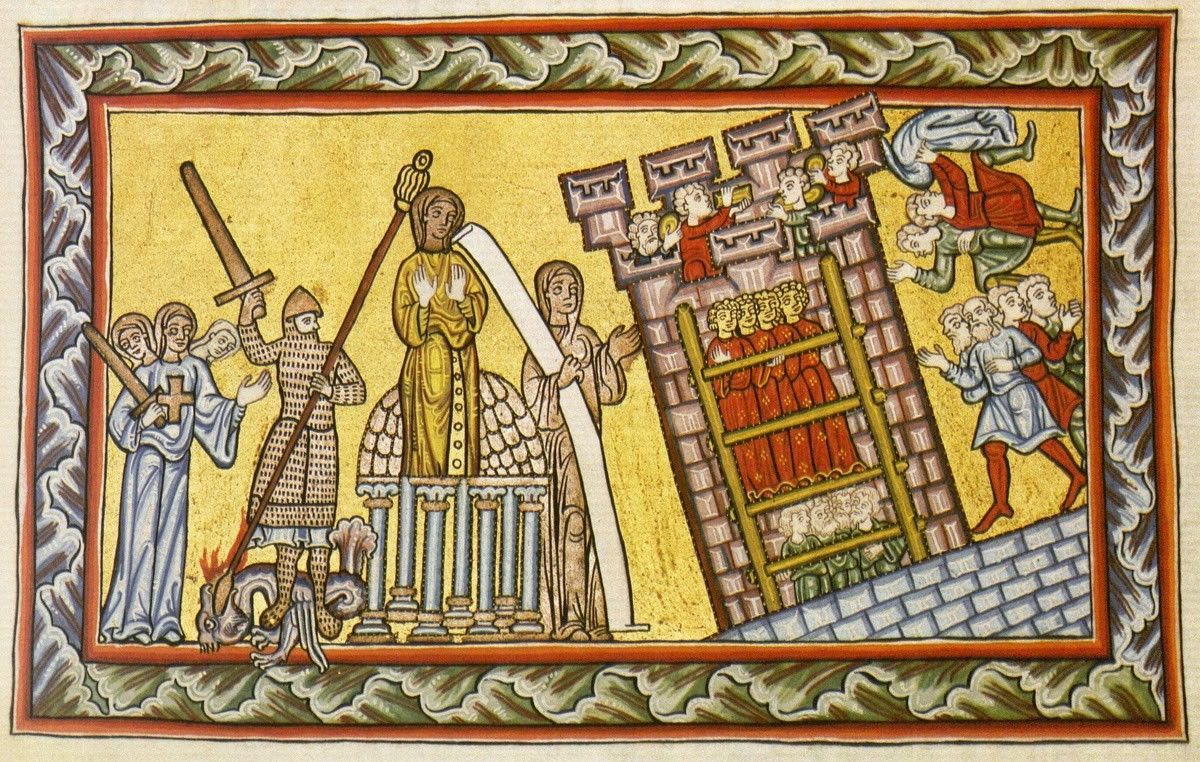
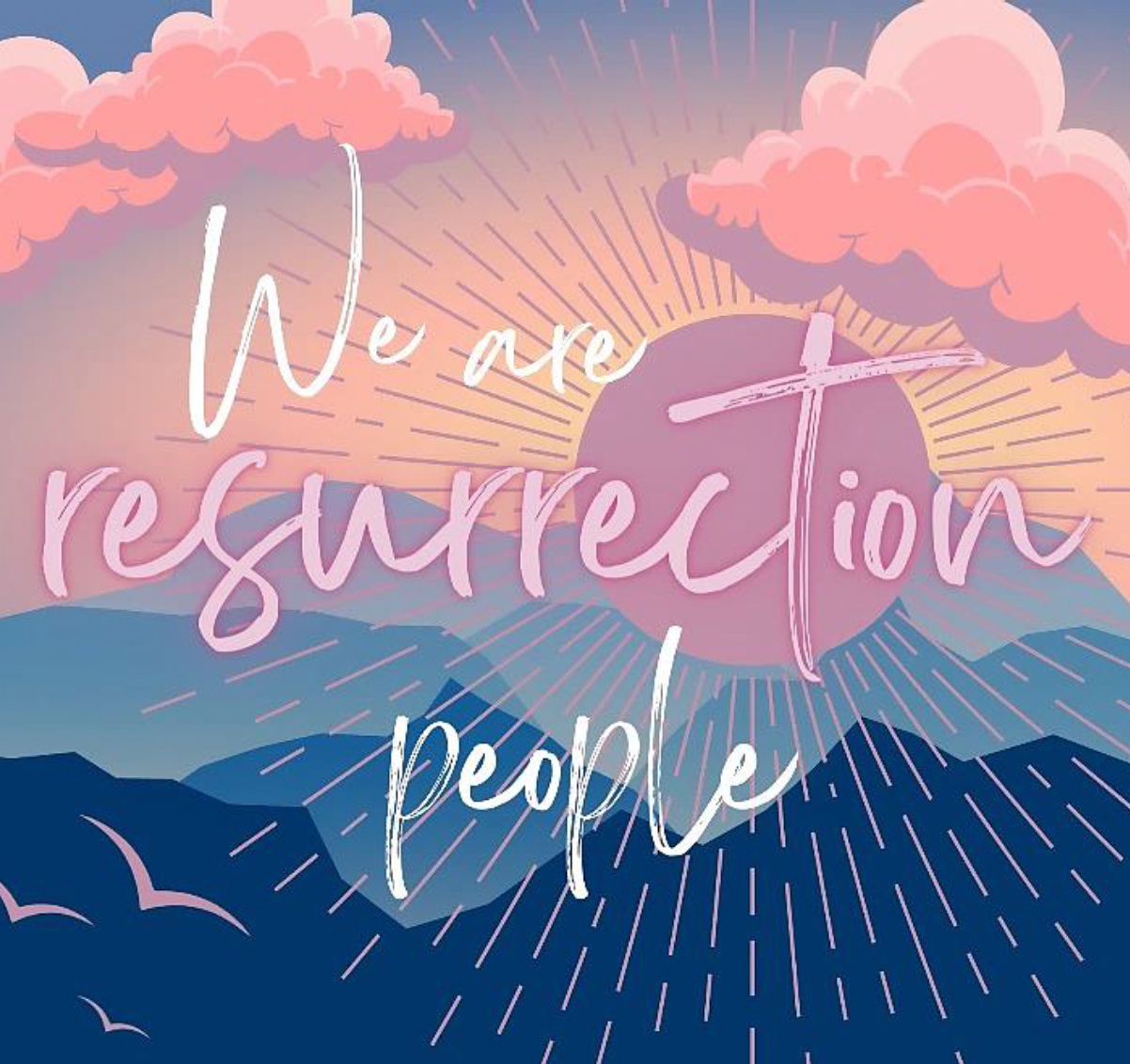




About Us
Our mission is to nurture and inspire our faith community to transform lives for Christ.
Church Office Hours
Sunday:
9:30am - 1pm
Monday - Friday:
10am - 4pm
Saturday: Closed
Contact Info
Calvary Presbyterian Church
2515 Fillmore Street
San Francisco, CA 94115
1 (415) 346-3832
info@calpres.org
Calvary is a 501(c)(3) nonprofit organization.
Tax ID # 94-1167431


